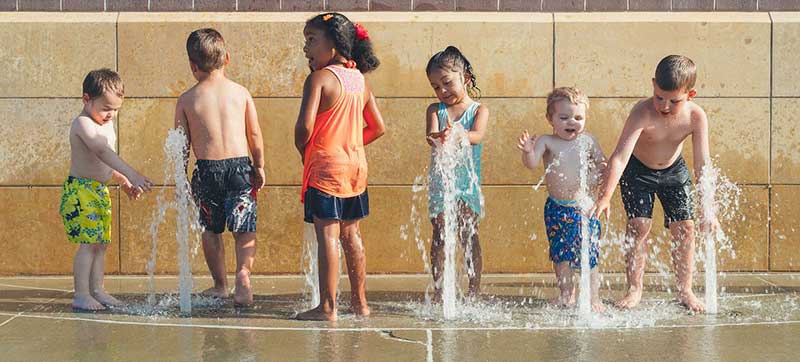 Heatwave
Heatwave
Heatwave threat impacts half of all children in Europe and Central Asia
New York: Half of all children in Europe and Central Asia, 92 million, are exposed to high heatwave frequency, or double the global average, the UN Children’s Fund (UNICEF) said on Thursday in a new policy brief.
This is expected to rise to all children in 2050, according to Regina De Dominicis, UNICEF Regional Director Europe and Central Asia.
She said countries there are feeling the heat of the climate crisis, and children’s health and well-being are suffering the most
“The multitude of negative implications on the current and future health of such a significant proportion of the region’s children must be a catalyst for governments to urgently invest in mitigation and adaptation measures,” she added.
Children at risk
The report said children are particularly vulnerable to the impacts of heatwaves as their core temperatures rise significantly higher and faster than adults', putting them at risk of serious illness including heatstroke.
Furthermore, heatwaves also affect children’s education by hampering their ability to concentrate and learn.
While children are uniquely vulnerable to the impact of heatwaves, UNICEF noted that most adults experience heat differently, making it hard for parents and caretakers to identify dangerous situations or symptoms of heat-related illness in children.
In recent years, heatwaves in Europe and Central Asia have become more frequent with no signs of abating, and the frequency is set to increase even further.
The report warned that under the most conservative estimates of global temperature increase at 1.7 degrees Celsius, a concerning future awaits boys and girls in the region. By 2050, every child is predicted to experience high heatwave frequency.
Approximately 81 per cent of children will be subjected to prolonged periods of intense heatwaves, while 28 per cent will encounter even more severe heatwave conditions.
Beat the heat
To protect children, UNICEF outlines six recommendations for Governments across Europe and Central Asia.
They include incorporating heatwave mitigation and adaptation into climate-related commitments and disaster risk reduction and disaster risk management policies, keeping children at the centre of all plans.
Governments should also invest in primary health care to support prevention, early action, diagnosis, and treatment of heat-related illness among children, including training community health workers and teachers.
They can further invest in national climate early warning systems, carry out local environmental assessments, and support emergency preparedness and resilience building initiatives.
Support Our Journalism
We cannot do without you.. your contribution supports unbiased journalism
IBNS is not driven by any ism- not wokeism, not racism, not skewed secularism, not hyper right-wing or left liberal ideals, nor by any hardline religious beliefs or hyper nationalism. We want to serve you good old objective news, as they are. We do not judge or preach. We let people decide for themselves. We only try to present factual and well-sourced news.







